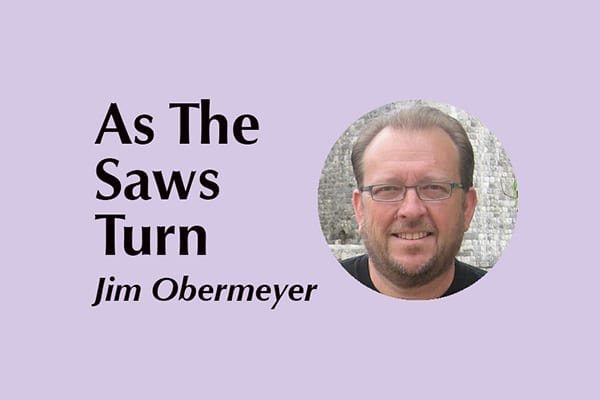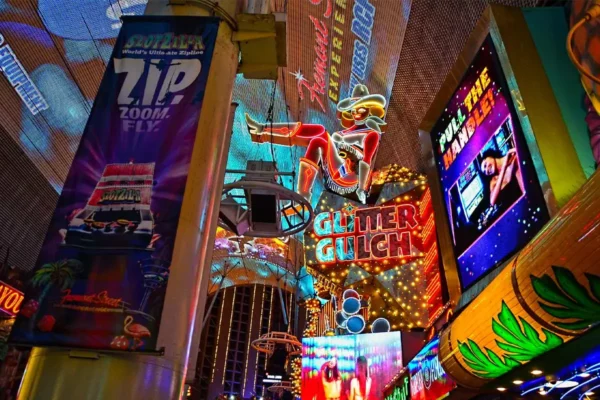by Jim Obermeyer
We find ourselves in the middle of unprecedented and confounding times—where our culture and the world have changed. Polarization is at an all-time high, and it’s seeping into every aspect of our lives. But polarization isn’t really a cause, it’s a symptom and the symptoms are everywhere.
Let’s take tipping, for example. It’s no surprise that tipping is on life support. Many service industry employees are so affected by the decline of tipping that they’re leaving the service industry with no plans to return. The exodus is so large that businesses are struggling to find and retain staff.
But tipping is just the tip of the iceberg.
So why has tipping gone south? It’s not economic or political, it’s a symbol of an erosion in civility. And the erosion of civility is the result of trauma, a sustained level of anxiety resulting from the pandemic. For two years, we’ve been fed a steady diet of fear. Relentless gloom-and-doom headlines have led millions to think about death every day, which is unnatural and unhealthy. The outcome of this sustained fear has resulted in fundamental changes in how we see the world and how we treat others.
Tipping is an expression of thoughtfulness and generosity. If you have been contemplating your mortality every day, those things have less importance. If you could be dead soon, why would you care if someone gets tipped? You’ll never see them again.
The effects of anxiety and a new outlook on life can be seen in many aspects of society now. People are exhibiting more impatience, irritability, rudeness and often outright rage. Of course, there was conflict prior to the pandemic, but when were there this many reports of altercations between passengers and airline staff? When have so many people in the service industry just bailed from not just their jobs, but from the industry altogether?
We’ve all seen increases in public fights and brawls in recent months. There have been increases in drug abuse and overdoses, domestic abuse, mental illness, suicides and other social ills. It’s all an epidemic of unaddressed emotional fatigue. It’s a stress, a weight, that never subsides.
We can debate endlessly the efficacy or value of masks, but there can be no disagreement that they are a barrier between people. Perhaps the worst part: they cover up smiles. Smiles are social lubricant. Masks should symbolize a collective concern for others, but instead, they’re a daily reminder of how afraid we’re supposed to be. Masks have contributed to an onslaught of unpleasant, contentious interactions that have changed our mood at a fundamental level. They’ve become an excuse for bad behavior and disrespect toward people. Contempt has become the norm, the default.
Some believe the scariest thing about the virus is that it’s an “invisible threat.” Is it, though? Other people are now the enemy. They’re carriers. They’re dangerous. All we’ve heard for two years is we need distance between us to be safe. Is it any wonder we’re treating each other differently?
Civility is a social contract, and it’s falling apart. There are a lot of contributing factors, but ultimately, it’s a fear of death and looming disaster at the core of what we’re seeing across the country.
Kindness and generosity are losing. Selfishness, invalidation and jackassery are winning. We have to get a handle on where it’s coming from, and we have to start giving the problems we’re facing the proper context. If civility and politeness and thoughtfulness go, we’re in for a bigger catastrophe than a pandemic. Pandemics end, but the way we treat each other is here to stay.
The path toward reversing these trends can start simply, today. Slow down. Talk to your neighbor. Tip more. Be patient. Listen. If you see something that makes you mad or hear an opinion you don’t agree with, just move on. Treat others as you would like to be treated, or maybe even a little better.
Who we’re being isn’t who we are. We can’t control others, or what happens in the world, but we do have control over our reaction to people and circumstances. The impatience and frustration and anger have a source and it’s temporary. Those feelings are natural. Unleashing them on others doesn’t help us, it just amplifies the chaos.
We’ve all been through so much. While destructive feelings may be part of us, they don’t have to run us. Kindness begets kindness and what goes around comes around.
It’s going to get better. And it starts with you and me.
See you on the show floor.
Jim Obermeyer has been in the exhibits and events industry 40 years, both as a corporate tradeshow manager and exhibit house owner. He can be reached at jobermeyer903@gmail.com
This story originally appeared in the Q1 2022 issue of Exhibit City News, p. 12. For original layout, visit https://issuu.com/exhibitcitynews/docs/ecn_Q1_2022






























